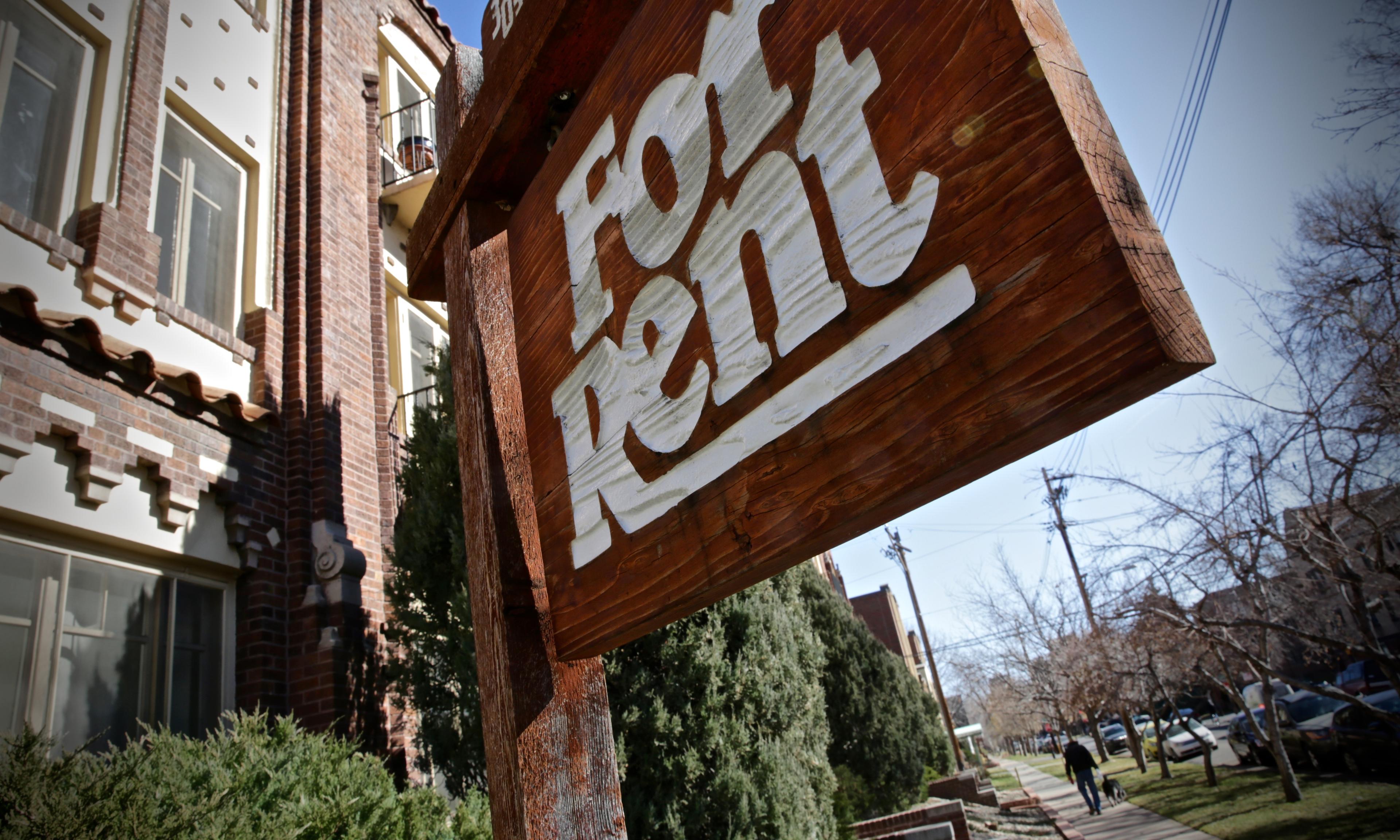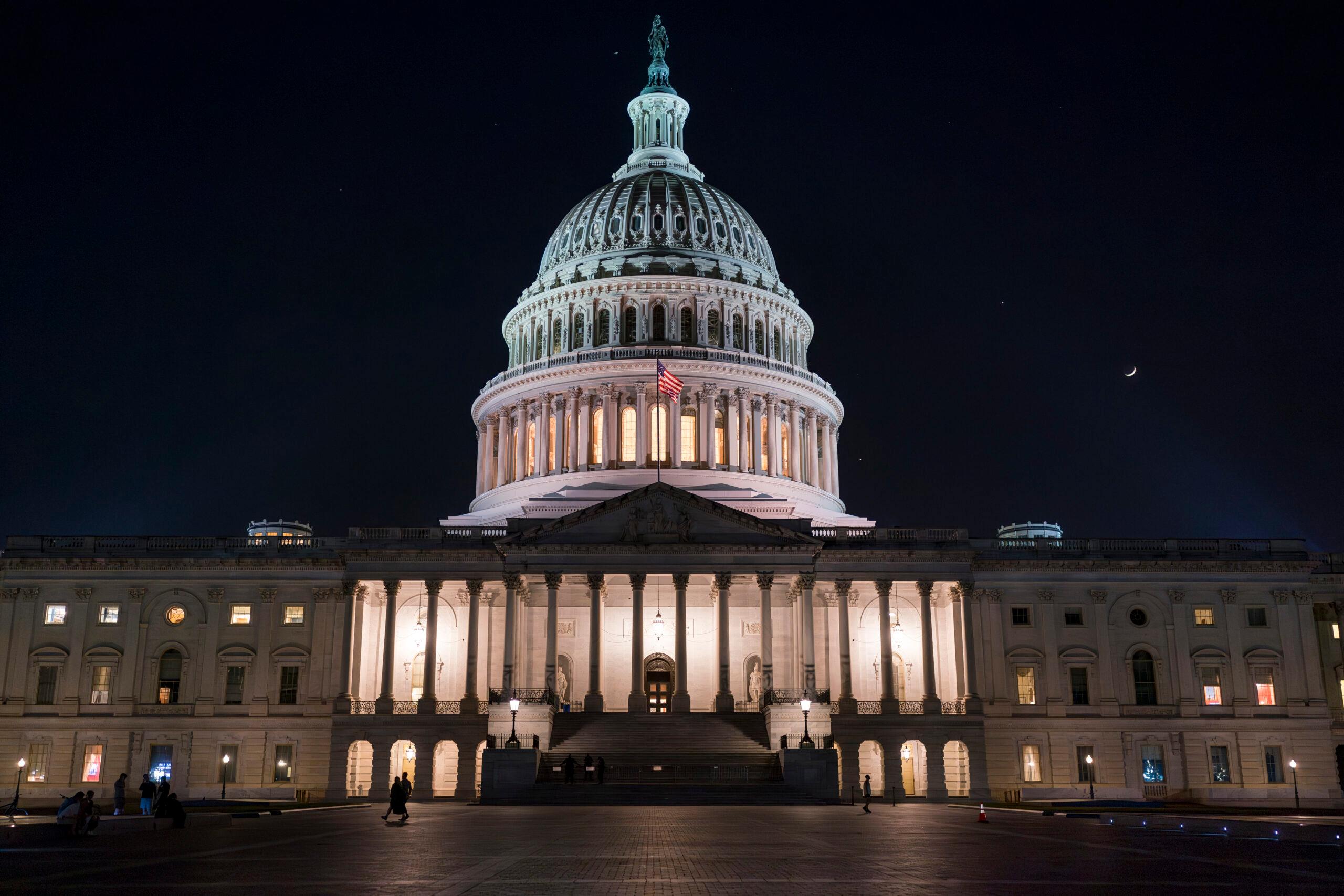

There’s no question that rent is a growing concern for Coloradans.
An analysis by Apartment List, a rental listing site, found that half of tenants in Denver spend more than 30 percent of their paycheck on housing. Rates are similar in Grand Junction and Pueblo. It’s even worse north of the metro. Numbers rise to 60 percent in Boulder and 61 percent in Fort Collins.
One potential way to tackle the high costs has been off the table for more than 30 years in Colorado: rent control.
State law bans cities from regulating the rental market. The restriction has forced Colorado communities to find creative ways to add affordable rental units, all while staying on the right side of the law.
- Does Denver Have An Apartment Glut? Nope. There’s A Renter Shortage
Now, State Sen. Julie Gonzales, part of a new class of Democratic lawmakers at the Capitol, hopes to scrap the ban entirely. While the exact language is still in the works, the plan is to introduce a bill to let cities regulate their rental markets.
“I think that municipalities should have a full set of policy options to decide what makes the most sense for them,” she said.
Most states have similar rent control bans. Gonzales’ bill would bring a national debate over those policies to Colorado. A California ballot measure to end limitations failed last November. In Illinois, parts of Chicago have voted to lift the state ban on rent control, as part of a nonbinding effort to pressure state lawmakers.
Depending on who you ask, doing away with Colorado’s prohibition is either the first step to reining in out-of-control housing costs or economic insanity that could actually make housing even less accessible. The proposal will also likely become the left goalpost in a broader debate about Colorado’s cost of living during the 2019 legislative session.
A Far-Reaching Ban
For Denver City Council Member Paul Lopez, the bill is welcome news. The outgoing councilman, now a candidate for city clerk and recorder, joined the council just before the Great Recession. He watched the city go from a housing bust to a building boom, but now worries about who the recovery is really for.
“I see all these cranes in Denver’s skyline,” he said. “And I’d feel a lot better about those cranes if 20, 25 maybe 30 percent of those units were [priced] at an affordable, attainable level.”
That idea is often called inclusionary housing. It’s a catch-all term for policies meant to encourage developers to build more affordable places to live as a part of new construction. Early in his career, Lopez proposed the simplest form of the idea: requiring Denver developers set aside a portion of new rental units as affordable.
“I don’t know how many lawyers told me you can’t do that,” he laughed. “I don’t know how many policy people told me you can’t do that.”
He was told “you can’t do that” due to the interpretation of Colorado’s rent control ban. In 2000, Colorado’s Supreme Court heard a case about a similar policy in the mountain resort town of Telluride. The court decided the rule against price-setting applied to current apartments and new construction. Cities simply could not force the developers to build below-market rental units.
Places like Denver and Boulder still have inclusionary housing ordinances, but because of the Telluride decision, they have to offer developers alternatives to adding affordable units to a specific building. Both cities allow builders to pay for an exemption, which goes into an affordable housing fund.
There are also plenty of rental properties with restricted rents in Colorado. That’s because cities can work with developers to limit rents when they take taxpayer dollars for a project. When public money isn’t involved, landlords are free to price apartments as they see fit.
Past efforts at the legislature have proposed modifying the rent control ban to allow affordable housing policies with more teeth. But with the cost of living outpacing wages in Colorado, housing advocates say more is needed to help renters.
The Case For And Against Rent Control
Andrea Chiriboga-Flor, an organizer with 9to5 Colorado, is part of a coalition of housing and economic justice groups pushing the bill to end the rent control ban. She knows the prospect of rent regulation will set off alarm bells, but said the fear that “people would have to roll back rent costs is just a misconception.”
Chiriboga-Flor listed more common approaches: a cap on year-over-year rent increases or a temporary stabilization of rent. Whatever the policy, she said a city could tailor its approach to its specific housing market. Denver could craft laws to slow gentrification and Telluride could work to preserve worker housing.
Opponents say it’s not that simple.
Teo Nicolais, a landlord and vice president for the Apartment Association of Metro Denver, said he understands that people want to do something about housing costs, but rent control shouldn’t be part of the conversation. He said it’s a policy “which feels good, it sounds good, it’s easy to understand, but rent control has disastrous consequences.”
There’s a reason even liberal economists have no patience for rent control, he said. By setting price controls in the market, a city could discourage developers from building new rental units. For him, it’s basic economics. Prices go up when demand outstrips supply.
Nicolais also cited a Stanford analysis of rent control policies in San Francisco. It found gentrification in the city may have accelerated since new construction is exempt from the limits. That encouraged many developers to replace rent-controlled apartments with high-end units or owner-occupied condos, according to the research.
He doesn’t want to see a similar story play out in Colorado.
“As a Denver Native, as a citizen of this city, and someone who’s kind of a nerd on housing policy, I don’t like to see bad policy,” he said. “And rent control is bad policy.”
Unlikely Odds
Key lawmakers appear to agree with Nicolais. Democratic state Sen. Angela Williams has her own plans on housing, such as a bill to extend the amount of time renters would have to cure a violation for overdue rent.
But letting cities regulate rent increases? Not so much.
“I don’t think cities and counties should be in the business of telling businesses how to run their businesses,” said the northeast Denver senator and chair of the Senate business committee.
Democrats in the Colorado House are also cautious about the idea. Assistant Majority Leader Chris Kennedy said his caucus has a separate package of renter protection bills. It includes policies like reigning in rental application fees and making it illegal for landlords to deny tenants based on their source of income.
“I don’t think there’s any doubt that we are trying to do more to help renters find affordable housing and fund more housing supply,” he said. “I think the question of whether rent control is an appropriate policy is something that bears a lot of conversation before we jump forward.”
That likely means the rent control proposal will be a tough sell, even with Democrats in full control of state government.









